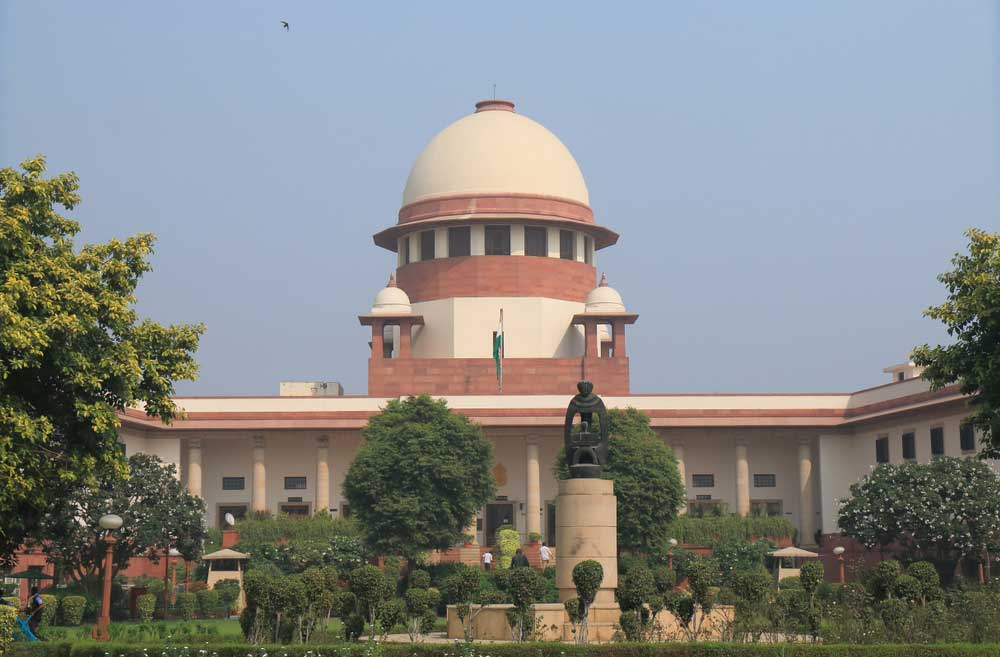At least 15 petitions on Kashmir are now before various courts and nine of these that challenge the abrogation of special status to the state have been clubbed together to be heard in early October.
Several petitioners, who have family in Kashmir, as well as non-Kashmiris have filed habeas corpus pleas, the latest being the plea by MDMK founder Vaiko, who asked the Supreme Court to seek the production of former Jammu and Kashmir chief minister Farooq Abdullah who is confined to his home.
In another petition, Karnataka High Court has asked the Centre to respond to a Kashmiri student’s plea. Twenty-three-year-old Syed Peerzada Suheel Ahmad from Pulwama lives and studies in Bangalore. He last spoke with his parents in Pulwama was on August 4, a day before the abrogation of special status after which phone lines snapped. His plea is related to the continuing communications blackout in the state.
“News reports suggest a limited easing of restrictions in relation to landline services, but it doesn’t bring any relief to the petitioner as there is no landline connection installed at the petitioner’s home,” reads Suheel Ahmad’s petition.
The court acknowledged that similar petitions were pending in the Supreme Court and allowed the Union to furnish details of the pending petitions until September 13.
In a similar petition, heard by the Supreme Court last month, Mohammad Aleem Syed moved a habeas corpus petition. He also hadn’t been able to speak to his parents since August 4.
CPM general secretary Sitaram Yechury, too, filed a habeas corpus petition for his colleague and CPM leader Mohammed Yousuf Tarigami who was detained in Srinagar. The court had allowed Yechury to visit Tarigami, while instructing him not to wander around. Yechury was later successful in getting an ailing Tarigami shifted to AIIMS in Delhi.
Others who filed petitions on the abrogation of special status and bifurcation include Muzzafar Iqbal Khan, a retired district judge in Jammu and Kashmir, Mohd. Akbar Lone, a National Conference leader, Inder Salim alias Inder Ji Tickoo, a Delhi-based artist, Radha Kumar, former MHA appointed interlocutor, Farooq Ahmad Dar, a Kashmir-based businessman and lawyers Manohar Lal Sharma, Shakir Shabir, Soayib Qureshi.
A petition from another lawyer, Vineet Dhanda, is pro-government and in support of the move against Article 370. In a tweet on the day the nine petitions are referred to a constitution bench, Dhanda said, “My PIL IS AGAINST the people, some media houses and political parties trying to create unrest in the country and creating fake news.”
Deviating from usual practice, the court permitted Yechury and Syed to visit Kashmir instead of producing theperson. They were asked to file an affidavit on their return. Syed’s petition will be taken up on September 16, along with petitions of Kashmir Times editor Anuradha Bhasin and social activist Tehseen Poonawalla.
Bhasin had sought immediate relaxation on “all restrictions on mobile, internet and landline services and the strict restrictions on freedom of movement of journalists and media personnel in Kashmir”. In an additional affidavit, Kashmir Times editor in-chief Prabodh Jamwal has alleged that journalists were constantly monitored and routinely harassed in Kashmir.
Poonawalla also had a similar prayer alleging denial of basic rights and sought removal of “regressive measures” such as the blocking of phone lines, internet and news channels.
In a separate order on August 28, the Supreme Court clubbed nine petitions and referred it to a constitution bench. A five-judge constitution bench is expected to hear the matter in the first week of October. These nine petitions challenged the abrogation of the special status of Jammu and Kashmir under Article 370 and the state’s reorganisation into two Union territories. These include a petition by Shah Faesal and Shehla Rashid, both leaders of the Jammu and Kashmir People’s Movement. The petition said that “the will of the people finds no expression in the concurrence of the government of the State provided by the Governor, who is merely substituting for a popularly elected government, as an emergency measure under Article 356 of the Constitution.”











